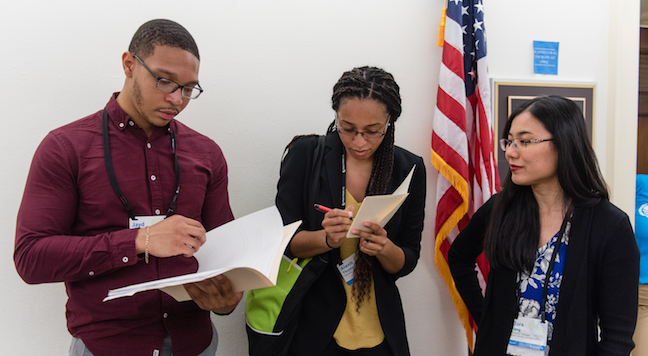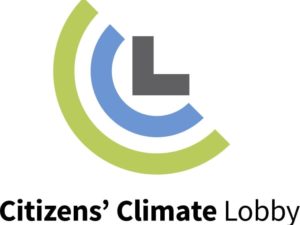
CCL volunteers have lobbied hard for several bills that just passed Congress in a major omnibus package.
Three of CCL’s lobbying asks pass Congress, will become law
By Flannery Winchester
Just before heading home for the 2020 holidays, the U.S. House and Senate passed a massive omnibus package. The package, which includes COVID relief and government funding, is also “the most significant energy legislation in more than a dozen years,” Politico reports. President Trump is expected to sign it.
“The agreement includes sweeping clean energy reforms, R&D [research and development] enhancements, efficiency incentives, and extends clean energy tax credits to create hundreds of thousands of jobs across the clean economy,” Congressional leaders announced, reported by E&E News. “The package also phases out superpollutant HFCs [hydrofluorocarbons], positioning the U.S. to lead the world in avoiding up to 0.5 degree Celsius of global warming.”
This is fantastic news of bipartisan climate progress—but the good news doesn’t stop there. Tucked below the encouraging headlines are details of particular interest to Citizens’ Climate Lobby supporters.
The package includes the major provisions from three of CCL’s “supporting ask” bills: the BEST Act, the USE IT Act, and the Climate-Ready Fisheries Act. “CCL volunteers played a key role in getting cosponsors for those bills, which was a factor in them being included in the bigger bill,” says Ben Pendergrass, CCL Senior Director of Government Affairs.
Let’s take a closer look at each one:
BEST Act
CCL began lobbying on the Better Energy Storage Technology (BEST) Act in June of 2019. The bill, which authorizes $300 million over five years to reduce the cost of grid-scale energy storage systems, gained 24 cosponsors following CCL’s June lobbying this year. That support was a factor in the BEST Act being included in the Clean Economy Jobs and Innovation Act, which the House passed in September.
USE IT Act
Politico calls this the USE IT Act “a top priority of outgoing Environment and Public Works Chair John Barrasso (R-Wyo.) that would boost carbon capture and direct air capture technologies.” CCL volunteers have lobbied on this legislation since June of 2019, too, and it gained cosponsors after our lobbying pushes.
Climate-Ready Fisheries Act
CCL volunteers also advocated for the Climate-Ready Fisheries Act in June of this year—the bill gained 10 cosponsors after our lobby days. This provision will require a report to be prepared about efforts to adapt our nation’s fisheries to the impacts of climate change.
The inclusion of these measures in the larger omnibus package shows that CCL’s volunteer lobbying has an impact. And now that they’ve passed Congress, we’re measurably closer to future bipartisan agreement and climate action. “Every success makes it easier to get to the next step,” Pendergrass says.
Another important lesson from this week’s vote is that bipartisanship is necessary to get things done. These bills had bipartisan support in and out of Congress, and they passed in a larger bipartisan package. This is a powerful reminder why CCL works in the way we do: we lobby members of Congress on both sides of the aisle, and our supporters are of all political stripes, because it takes a broad coalition to advance on these issues.
As we head into 2021, let’s celebrate that three of our supporting asks will now be law alongside other valuable climate and energy policies. These types of wins take a long time to achieve, so let’s savor the rare days when legislation crosses the finish line! Thank you to all our volunteers who lobbied on these bills, to our legislative staff who supported those efforts in D.C. all year round, and to everyone who has supported CCL to make it possible.


